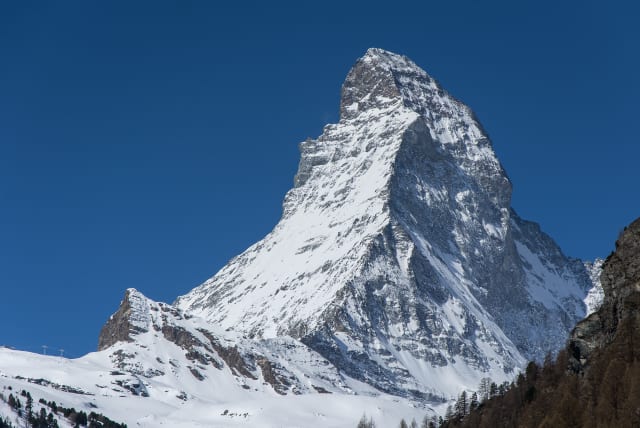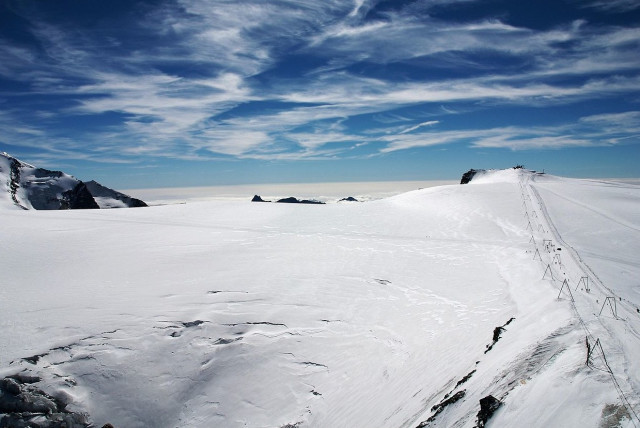Switzerland finds remains of climber who disappeared on glacier in 1986

Shrinking glaciers due to climate change has led to the discovery of bodies of climbers who disappeared over the last decades.
The remains of a German mountain climber who disappeared while hiking along a glacier near Switzerland's iconic Matterhorn mountain in 1986 have been recovered, as melting glaciers have led to the reemergence of bodies and objects thought to be long-lost.
The grisly discovery was made on July 12 by climbers hiking along the Theodul Glacier in Zermatt, police in the Valais canton said on Thursday.
"DNA analysis enabled the identification of a mountain climber who had been missing since 1986," the police said in a statement.
"In September 1986, a German climber, who was 38 at the time, had been reported missing after not returning from a hike."
The police did not provide additional information on the climber's identity nor on the circumstances of his death. It published, however, a picture of a lone hiking boot with red laces sticking out of the snow that had belonged to the missing person.
How did they prove the remains were that of the missing hiker?
The climber's remains underwent a forensic analysis at Valais Hospital, allowing experts to link them to the 1986 disappearance, the police said.
Shrinking glaciers due to climate change has led to the discovery of bodies of climbers who disappeared over the last decades.
In 2015, the remains of two young Japanese climbers who went missing on the Matterhorn in a 1970 snowstorm were found and their identities were confirmed through the DNA testing of their relatives.
Last year Switzerland's glaciers registered their worst melt rate since records began more than a century ago, losing 6% of their remaining volume -- nearly double the previous record in 2003.
Jerusalem Post Store
`; document.getElementById("linkPremium").innerHTML = cont; var divWithLink = document.getElementById("premium-link"); if (divWithLink !== null && divWithLink !== 'undefined') { divWithLink.style.border = "solid 1px #cb0f3e"; divWithLink.style.textAlign = "center"; divWithLink.style.marginBottom = "15px"; divWithLink.style.marginTop = "15px"; divWithLink.style.width = "100%"; divWithLink.style.backgroundColor = "#122952"; divWithLink.style.color = "#ffffff"; divWithLink.style.lineHeight = "1.5"; } } (function (v, i) { });

